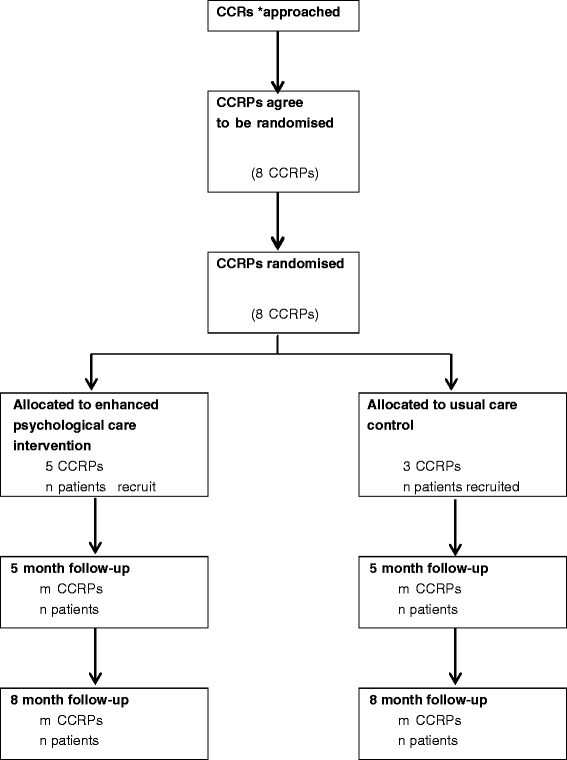Assessing the effectiveness of enhanced psychological care for patients with depressive symptoms attending cardiac rehabilitation compared with treatment as usual (CADENCE): study protocol for a pilot cluster randomised controlled trial
- PMID: 26830029
- PMCID: PMC4736496
- DOI: 10.1186/s13063-016-1184-9
Assessing the effectiveness of enhanced psychological care for patients with depressive symptoms attending cardiac rehabilitation compared with treatment as usual (CADENCE): study protocol for a pilot cluster randomised controlled trial
Abstract
Background: Around 17% of people eligible for UK cardiac rehabilitation programmes following an acute coronary syndrome report moderate or severe depressive symptoms. While maximising psychological health is a core goal of cardiac rehabilitation, psychological care can be fragmented and patchy. This study tests the feasibility and acceptability of embedding enhanced psychological care, composed of two management strategies of proven effectiveness in other settings (nurse-led mental health care coordination and behavioural activation), within the cardiac rehabilitation care pathway.
Methods/design: This study tests the uncertainties associated with a large-scale evaluation by conducting an external pilot trial with a nested qualitative study. We aim to recruit and randomise eight comprehensive cardiac rehabilitation teams (clusters) to intervention (embedding enhanced psychological care into routine cardiac rehabilitation programmes) or control (routine cardiac rehabilitation programmes alone) arms. Up to 64 patients (eight per team) identified with depressive symptoms upon initial assessment by the cardiac rehabilitation team will be recruited, and study measures will be administered at baseline (before starting rehabilitation) and at 5 months and 8 months post baseline. Outcomes include depressive symptoms, cardiac mortality and morbidity, anxiety, health-related quality of life and service resource use. Trial data on cardiac team and patient recruitment, and the retention and flow of patients through treatment will be used to assess intervention feasibility and acceptability. Qualitative interviews will be undertaken to explore trial participants' and cardiac rehabilitation nurses' views and experiences of the trial methods and intervention, and to identify reasons why patients declined to take part in the trial. Outcome data will inform a sample size calculation for a definitive trial.
Discussion: The pilot trial and qualitative study will inform the design of a fully powered cluster randomised controlled trial to evaluate the effectiveness and cost-effectiveness of the provision of enhanced psychological care within cardiac rehabilitation programmes.
Trial registration: ISRCTN34701576 (Registered 29 May 2014).
Figures


References
-
- Singleton N, Bumpstead R, O’Brien M, Lee A, Meltzer H. Psychiatric morbidity among adults living in private households, 2000. London: HMSO2001 Feb–May. Report No.: 0954-0261 Contract No.: 1-2. - PubMed
Publication types
MeSH terms
Substances
Associated data
Grants and funding
LinkOut - more resources
Full Text Sources
Other Literature Sources
Medical

